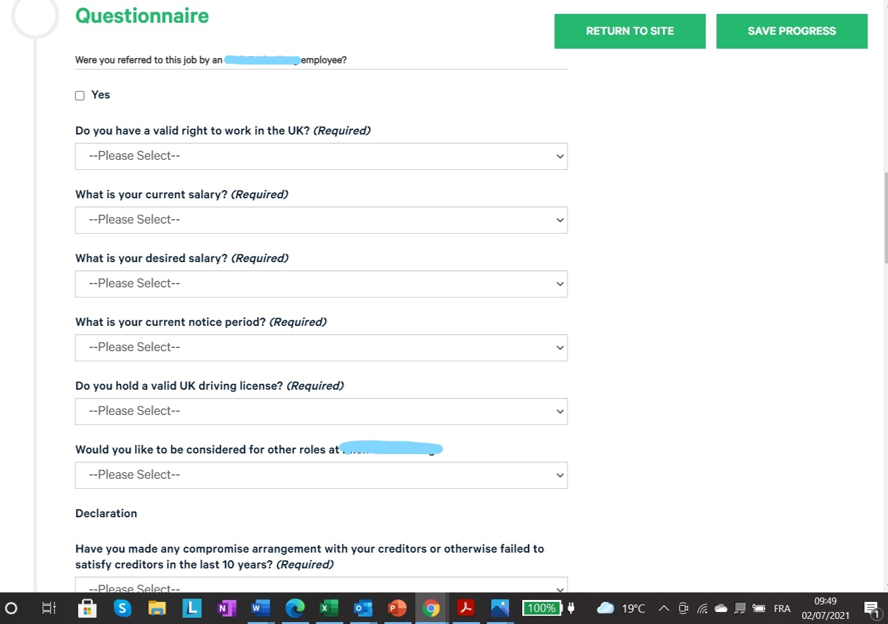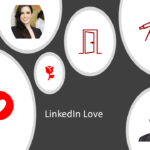I have tackled this topic three times before in 2009, 2013 and again in 2020 to manage expectations between job seekers and recruiters. There is a massive chasm in expectations which I believe is the source of miscommunication and frustration.
In 2021 because the issue is as entrenched as ever. The result is a ping pong between all parties which is not constructive, and helps no one in the process. It’s time for some recruitment myths to be debunked… yet again.
Rumi said “The art of knowing, is knowing what to ignore…” It is sifting through all the information and then making a decision is the challenge.
This is a bookmark post intended for reference and is by no means complete.
2021 updates
Today, in July 2021 for the time being there is an unexpected job boom. There are a significant number of ads for both Talent Acquisition specialists and recruiters (currently 350,000+ on LinkedIn) which is usually an indication of increased hiring activities. However, many individuals are still coming away from the process feeling disillusioned, depressed, inadequate and somehow short-changed after their dealings with recruiters and the systems.
In the last months I have talked to many job seekers who complain about poor experiences with recruitment, search companies and even in-house recruiters. A number have asked for support to explain how to negotiate what at times can actually be a more disheartening process than being out of work.
You should also note that the global pandemic produced massive unemployment levels in certain sectors which came after a period of high employment in a candidate driven market. Candidates also did not behave well, and “ghosting” entered into our recruitment vocabulary.
Mismatched expectations
In my network alone I have 2 million recruiter profiles, 800,000 career coaches and 2 million LinkedIn “experts.” Apparently in the US 1 in 20 profiles is involved in recruitment. Almost 50,000 new career “coaches” joined the market during the pandemic. The competition is high and the need for clicks on offers from entities and individuals is even higher. Caution is recommended.
76% of LinkedIn members live outside the U.S. Much of the advice is directed at the U.S market which is highly individualistic and male coded, where extraversion is rewarded. I would strongly advise reading the Hofstede Insights for the US. It’s very illuminating. This philosophy does not necessarily apply to other geographies where people are disappointed when the advice doesn’t work. They maybe even penalised for applying some of the suggested methodologies.
All of this contributes to mismatched expectations by potential candidates of the people, the processes and the organisations involved in job search. It might be helpful to map out what you can realistically expect in general terms from any recruitment or search organisation.
The recruiting process in a business context
- Talent Management / Human Capital / HR, whatever you want to call it, can be very much the poor relation in many organisations (why is a whole other topic). Sometimes the function is not even represented at executive board level. This can weaken the strategic voice within a company.
- During any downturn, as a service function, HR professionals quite often see their teams cut and many are simply overworked, under supported and beleaguered. If the number of TA jobs is high now – that is a sign of how many were let go last year. They are caught between demanding executive committees and angry, confused employees. We don’t know how that will go yet in 2021, with HR tipped to be the post COVID19 leaders.
- Any pressure HR professionals are under to reduce their hiring costs, are then passed onto search and recruitment organisations. Sometimes companies will give the same assignment to multiple recruitment companies who will compete against each other to place candidates. The unsuccessful organisations will have invested resources in good faith in this process and will not receive a fee.
Recruitment in a volatile market
- At the same time recruiting companies themselves were hit by the downturn and have laid off large numbers of staff, with many are also operating on reduced budgets and manpower. Tech recruiters and even LinkedIn were hard hit by the pandemic and laid people off hence the bid to replace them now. Some organisations work on contingency (no placement = no fee) and it is not economically viable to invest time in candidates who are not on target. Additionally they are dealing with huge numbers of unsolicited CVs during this period with currently lower staffing levels.
- When there is a drive to reduce costs in whatever sector you are in – this can impact the quality of the final product and service.
- There has now been a sudden uptick in the market, but with an added dimension of unprecedented numbers being open to move, either as passive candidates or those who simply subscribe to the Y.O.L.O philosophy – You Only Live Once and are willing to take the risk and have left their jobs.
Recruitment myths 2021
1. There is a hidden job market
The “hidden job market” has been used traditionally to describe jobs which were not publicly advertised, dating probably from the pre-internet 1980s. This has become the go-too, short-cut term which in a digital age could be potentially misleading and is no longer relevant.
There is NO hidden secret job market except for a tiny percentage of very senior roles. But there is a portion of the job market which needs some creative thinking to access it. The jury is out whether it should be called the secondary, dynamic, inaccessible or invisible job market.
IMPORTANT READ Please take time to read Time to Rename the Hidden Job Market analysis here.
2. Who recruiters work for. Not you!
This is the second job search myth that needs to be dispelled. The recruiter works for the hiring company not you. Hoisting that one simple fact on board will help enormously in managing your expectations of the outcome of any contact.
There are a number of ways career opportunities come to the market but whether the company is a retained executive search company or a recruitment company working on contingency, in all cases the client is the hiring organisation – not you.
3. How do I find a high calibre recruiter?
There are large numbers of highly qualified, skilled and committed search professionals throughout the world. But clearly, as in any profession there are some dodgy ones and there will always be degrees of excellence, or lack of it with the people you encounter.
In many countries there are no professional barriers to entry which allows anyone with limited or no relevant academic qualifications or even functional experience to set themselves up in this arena and claim to be a recruitment professional. If you have a lap top and a LinkedIn profile you are pretty much good to go.
If your consultant was airline crew or selling real estate 3 months earlier – be cautious. It is perfectly OK to check them out as individuals before finally committing and to shop around until you find someone with the type of experience you are looking for. LinkedIn or the company web site would be a good place to start any verification process.
4. Do I develop a relationship with a recruiter?
Career coaches advise candidates to develop strategic relationships with recruiters. Note the word strategic. This doesn’t mean sending off your CV to every recruiter on LinkedIn. See below. Most will not have time unless they are dealing with an opening in line with your profile at the time you send a resume in. Otherwise it will be stored on an in-house digital data base. Your CV will be retrieved later associated with key word searches. You may or may not get a response at the time. These are the reasons why.
If you want to stay in a specific location, or have a specialised skill set it can be advantageous to have good relationships with a small number of niche market recruiters.
In Europe G.D.P.R. applies. Some recruitment organisations no longer keep internal data bases and rely on LinkedIn.
5. Why won’t recruiters give me career advice?
While many recruitment consultants are also certified coaches (as I am) most are not, although the number that are (or claim to be) is increasing. High numbers became “career coaches” during the pandemic. Some are good because they understand the recruitment process and others are simply crooks looking for clicks.
A regular recruiter is not your personal coach and their role is not to motivate you or help you map out your career path. Many will be helpful, but others may have little understanding that even throw away phrases can have a very negative impact on anxious job seekers.
I have seen one so called career coach, based in Canada, call job seekers “desperate” if they follow even basic steps. NO qualified or certified coach would ever use language such as that. EVER.
Run.
In most other cases there is usually no ill-will involved. They simply don’t know any better and have their own stresses to deal with. Some need to make money, so caution is advised.
6. Why do I get no response to my job applications?
Russell Ayles, Australian based recruiter and job search coach has made a great start on this. He carried out research with a pool of 200+ respondents attempting to debunk some of the tropes that have been circulating for a decade. It is a good place to begin building up fresh sector data which is badly needed.
I speak from my observations of 25 years in the business.
The worst experience job seekers claim they have, is no response at all. Uploading your CV and it disappearing into the ether of cyber space and having no idea what, or if anything at all will happen to it is very disheartening. You should understand well that indeed probably nothing is happening to it.
If your CV is not targeted for a particular opening and depending on the way the ATS of a company is set up, your CV may get cut. If the system has not been set up to send a communication that is a human error, not a software error. This is a contentious issue in the sector. Ayle’s research would confirm that.
7. Killer questions can be deal breakers
Sometimes ATS have “deal breaker questions.” Ayle’s research suggests that only 17% reject candidates based on a killer question. See below a screen share taken from an application process in June 2021.
In Europe, these deal breakers could be around willingness to relocate, languages spoken, visa requirements, or even a driving licence, when they cut candidates automatically.
8. Candidate matching and key words
Some recruiters are justifiably annoyed because they read every CV and process all applications personally. I have no reason to doubt these solid professionals. In searches with a low volume of applicants this will indeed be true. However, I am not convinced that every single one of 2 million recruiters does that. Otherwise all candidates would have a response and we know that is not the case.
My own experience is that in searches where there are high volumes of applicants many ATS have a candidate ranking option (LinkedIn Recruiter does), where applicants are matched against key words. Recruiters may only look at the top 50% – 80% for example, depending how many applicants there are.
Ayles research suggests only 2% of his respondents use a candidate matching function in their ATS. (21% weren’t sure which is a bit worrying) This is not in line with my experience. That is all I can say.
Note. These matching parameters are generated by a person (the recruiters) and not randomly implemented by software. I have seen the matching function applied on numerous occasions and have used it myself. For example in a search for Business Development Director for China, I received applications from chefs from Chinese restaurants. This was probably prompted by “working knowledge of Mandarin an advantage” and other keywords related to China and Chinese.
This is why career coaches suggest that resumés be targeted for specific openings. Personally, I always err on the side of caution with my own coaching clients.
9. Contingency recruitment
Many recruiters are working on contingency – sometimes multiple companies competing against each other on the same assignment. If they don‘t place a candidate they don’t get paid. This is a huge problem in the industry, which I believe is central to the malaise, one that I have not seen in any other sector. The MO is “do the work and I’ll pay you if I like the result which I control.” Sounds fair, right?
Some organisations even demand that the search be repeated if the candidate does not last a year in post. Recruiters also have no control over how a candidate is treated once they join an organisation. Again, this highlights the commitment organisations have to the “people first” concept. In many cases it is lip service and what they want is butts on seats as quickly and cheaply as possible.
If in doubt ask the recruiter if they have exclusivity on the search. If they are evasive – probably not. It is up to you if you decide to work with such organisations – but at least you know now in advance that this is what is going on.
10. Why don’t recruiters give feedback?
This flawed system means that consultants are working to targets and focus on candidates they can be sure of placing. Basically most people involved in a search don’t have time to give feedback to candidates except for the final shortlist. Some adverts even say if you haven’t had a response within 6 weeks, this means that your candidacy has not been processed. That truthfully is ridiculous because an automated system can take care of that.
Some organisations only give generic feedback because they are afraid of legal repercussions.
If you are ghosted after the short list phase and don’t receive an email from the recruiter, I agree, that’s shabby and you have every right to be fed up.
Many recruiters will take time to develop candidate contacts, but others do not have time or resources for professional courtesies and admin. They leave those to be processed via their ATS, so their dealings can be transactional. ATS are only as effective as the humans who design them, set them up and the parameters they put on them.
Generally it is better to have a few solid trusted contacts than sending out your resume to every search company on the internet. Focus your time and energy on raising your general visibility and connectivity and making your job search strategic. LinkedIn is a great platform for this.
What can you do?
Don’t let your desire to spread your job search net as wide as possible cloud your judgement about which recruiter to use. Cherry pick. Job search strategies are just that – strategic! When you contact search or recruitment companies, focus on transferable skills and spell out how they would be of value in different environments. Mention both hard and soft skills, leadership qualities and change management experience, which are often the key factors in this context, especially today.
- Research the company beforehand. Check if it is a member of the AESC or perhaps a similar regional or local professional body. Very often the names of practice heads are published on the web site. Assess the experience levels of the consultants who are usually listed.
- Check if there is an open assignment section and see if anything is appropriate to your skill set.
- Sign up for alerts on LinkedIn, Google and their web site.
- Don’t “spray and pray.” Take a targeted approach and focus on the roles in line with your goals and a reasonable proportion of your skills. You don’t get a point because you can write your name at the top. 10% of the candidates for the last search I did were totally off target.
- Follow the instructions. If the ad asks for a cover letter, supply one. Just because you saw someone on LinkedIn suggest they are obsolete, they are still relevant for this particular organisation. Add it as a continuous document with your CV, unless specified otherwise because they can get separated. This is another reason for not putting anything in your cover letter that is not in your CV. Check there are no special instructions before hitting send.
- Video Some companies are now asking for responses to special questions or even a brief video. I have seen some that look more like hostage demands than job applications. Get some tips here. The arrival of TiKTok resumes on a trial basis in the US is also something to monitor.
- Upload your CV via their web site or by email using strong vocabulary, mirroring techniques (as appropriate) and keywords to make sure your CV comes within the parameters of the advert. If you can’t identify the key words, you possibly shouldn’t be applying for the job. If your CV is regularly disappearing into the job search ether – you need to do something different and change your key words, personal branding presentation or check your formatting.
And some more
- Don’t by-pass HR. I know this is sometimes recommended by career coaches, frequently in the U.S., but usually the CV gets pushed back to the Talent Acquisition department and/or the search firm. In some cultures it would also be considered inappropriate. Instead, try and build up some networking capital by setting up informational interviews with people within the organisation who may advocate for you. You will still potentially come onto the hiring manager’s radar that way. Except in start ups, most employment contracts and hiring processes are raised and run by HR.
- Understand that consultants are unlikely to contact you unless they have a specific opening. It’s a fine line to tread between being tenacious and a nuisance, requiring empathy and marketing skills when you contact these organisations.
- Absolutely do not pay any fees – If a recruiter asks for a fee just to receive your CV , they are not a recruiter. By definition, no recruiter should ever charge the candidate. If they have a search, the company pays. Just let that go. That process should not be confused with an outplacement or career coaching where a tangible service is provided and YOU become the client. Very often the company that has made you redundant will pay that fee and you should look into that too. In some geographies coaching expenses are a tax deductible.
What to do when you find a recruitment or company to trust
- Develop a relationship with the recruiter: People work with those that they like and trust. There is a caveat. Recruiters will generally do this if they have an opening in line with your qualifications and experience. In an economic downturn they simply may not have the time to deal with all job seekers who contact them. See above.
- Be correct, courteous and efficient in all your dealings – remember first impressions count. If you have a profile that is in high demand and are inundated, turn off your open to recruiters on your LinkedIn profile.
- Add value: Source colleagues, friends or even competitors who might be suitable if you are not. Recruiters appreciate and will remember that courtesy.
- Develop a reputation as an industry / sector source or technical specialist. If you gain a reputation in this area then the chances are that the recruiter will come back to you.
Avoid click bait fads of the FauxPro
You will frequently see different people coming out with advice that is usually prefaced with “always,” “never,” “must,” “don’t. ” Nuance doesn’t get clicks. Opinion isn’t fact and some of this advice is about one person’s need for attention, which they hope to convert into business. Followers doesn’t mean expertise! Read more here.
I can honestly tell you I have never sat in a candidate evaluation meeting and someone has said “This person has a career summary at the top of their CV. That’s very 2020. Let’s cut them.”
NEVER. EVER. NOT. ONCE.
And yes it isn’t easy and the process seems to lack transparency, but not all businesses are run in the same way. Even within organisations different hiring managers have different approaches. It’s all about research and networking, which is time consuming.
Holding the faith can be challenging – but you can do it!
If you need help getting a job and creating a job search strategy – get in touch NOW













This is extraordinary instructive data you have been shared. I like this article